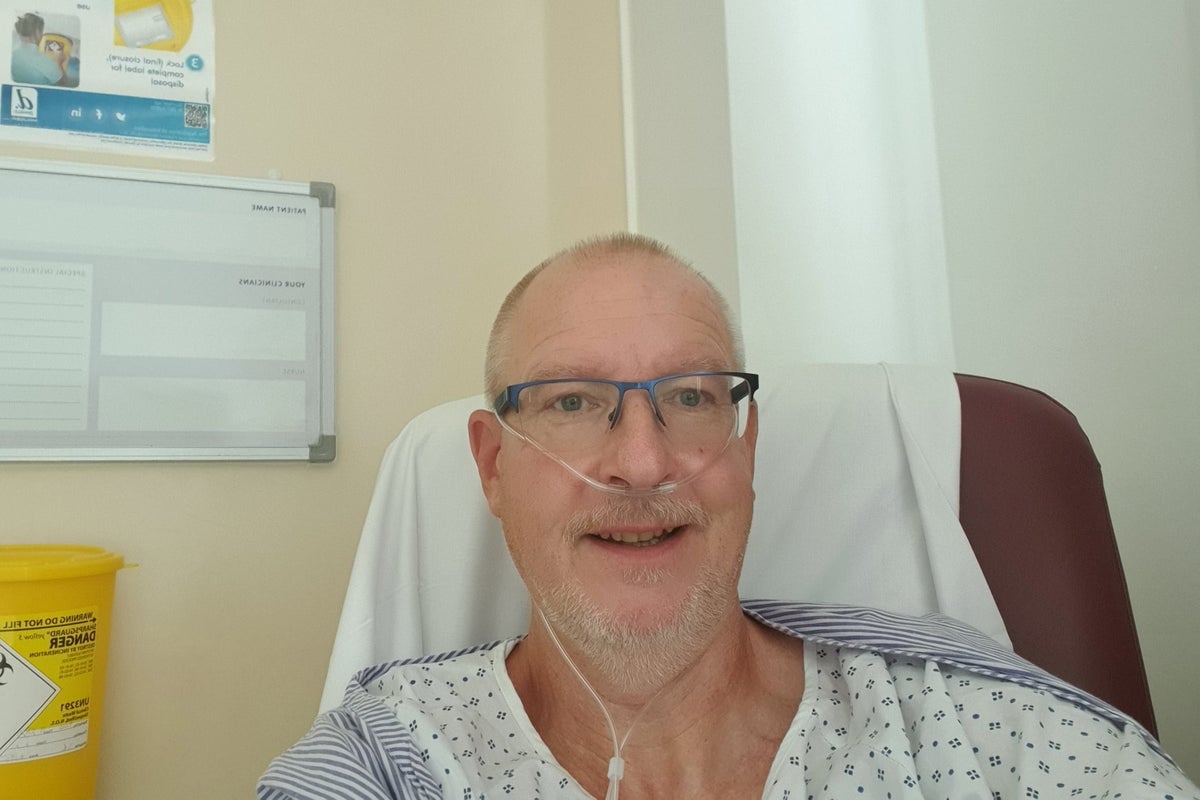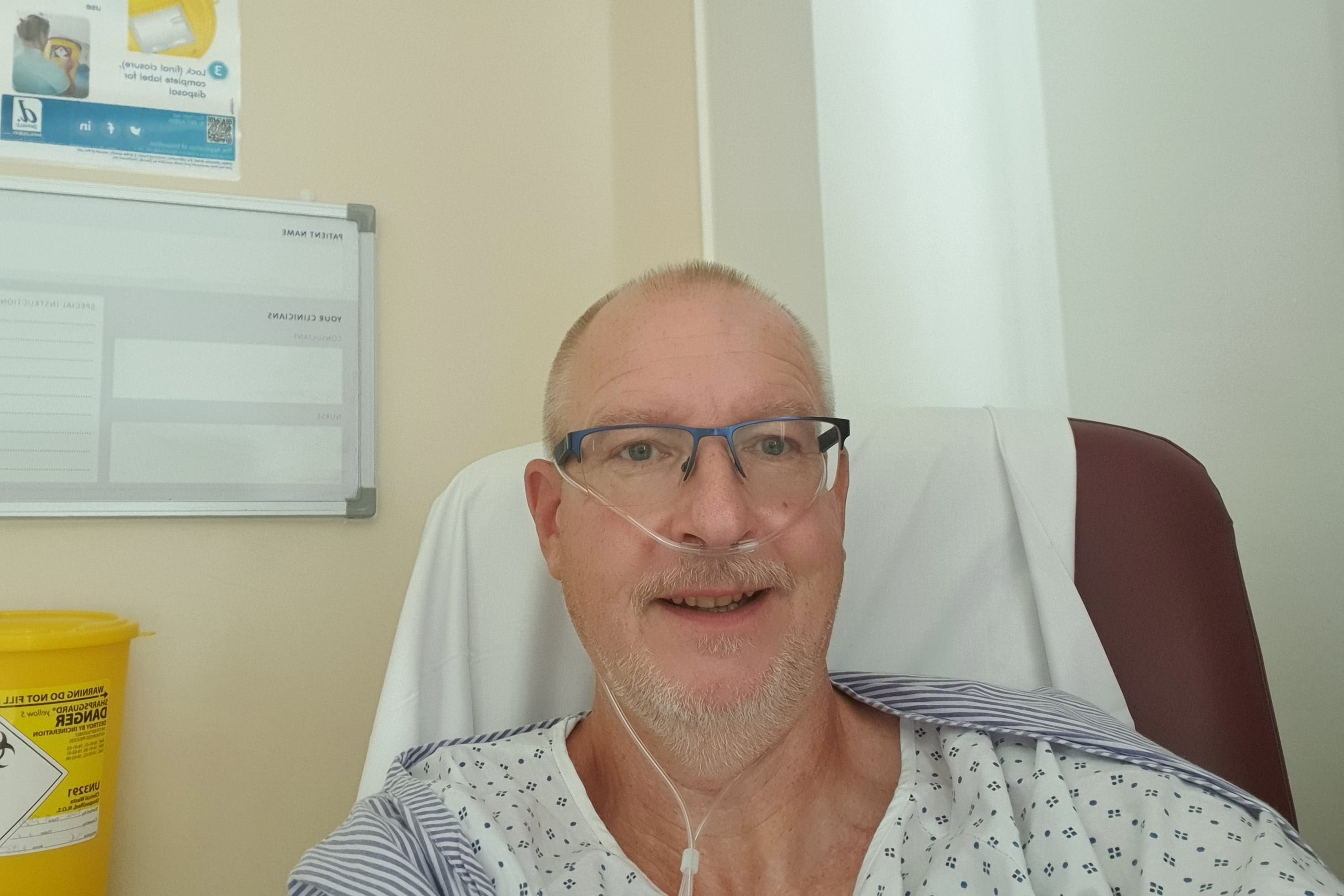
A pancreatic cancer survivor battling the disease for a second time has shared the early signs people of all ages should know.
Charles Czajkowski, 63, a business development manager for a geotechnical company from Surbiton, Kingston, has “declared war on pancreatic cancer” after a five-year ordeal with two rounds of the disease – which also caused the death of his mother Romaulda, aged 78, in 1999.
Czajkowski, who is hoping treatment he received through his wife’s private healthcare package will save his life, has urged the government to provide greater funding for the condition.
After his health began to decline in 2017, Czajkowski faced a series of delays to his diagnosis and treatment through the NHS until he accessed Bupa healthcare through the workplace of his wife of 16 years, Jackie.
After initial treatment success, in May 2022 Czajkowski’s cancer returned and private oncologists are now attempting to use a series of drugs, some of which are unavailable on the NHS, to save his life.
Now working to fight the illness and help patients to spot it early, Czajkowski is on the scientific advisory board for Pancreatic Cancer UK.
“It’s given me control,” Czajkowski said. “Pancreatic cancer has declared war on me… so to get back at it, I’ve declared war on pancreatic cancer by being able to help educate and save other people’s lives.
“It’s an awareness battle because pancreatic cancer UK hasn’t had much air time and hasn’t had the investment.”

What are the symptoms of pancreatic cancer?
Common symptoms of pancreatic cancer include:
- A new diagnosis of diabetes, or worsening diabetes that becomes difficult to control
- Abdominal pain that radiates to the back
- Loss of appetite or unintentional weight loss
- Digestive symptoms, such as diarrhoea
- Itchy skin
How was Czajkowski diagnosed?
Czajkowski’s ordeal as a cancer patient began in 2017 when he was diagnosed with type two diabetes.
Halfway through that year, he had a pancreatic attack – also known as acute pancreatitis – which, according to the NHS, is a severe pain which starts suddenly in the centre of a patient’s abdomen and can also be accompanied by vomiting and a high temperature.
For the rest of the year, Czajkowski was under observation amid repeated pancreatic attacks and he was rapidly losing weight, dropping from 85kg to around 75kg at 6ft tall.
“Another sign that things weren’t going right was that my pancreas wasn’t producing the enzymes and so I started getting what they call pancreatic diarrhea, which is a true sign if your food’s not being digested properly,” Czajkowski added.
As a result, his GP prescribed Czajkowski Pancreatic Enzyme Replacement Therapy (Pert) which made his weight stable as he was now able to absorb nutrients.
From there, Czajkowski was sent to a series of different hospitals for scans and assessments.
Eventually, at the beginning of March 2019, further tests revealed a 10-millimetre tumour on the head of Czajkowski’s pancreas.
How was Czajkowski’s cancer treated?
In March 2019, Czajkowski met with the head of the surgical team at Hammersmith Hospital alongside his wife and a Macmillan nurse.
The NHS doctor explained to Czajkowski that a whipple procedure to remove the head of the pancreas, the first part of the small intestine, the gallbladder and the bile duct, would take place two months later.
After researching the survival rate for pancreatic cancer, Czajkowski feared this wait time was a risk so decided to go private for the rest of his treatment through his wife’s Bupa medical cover.
His operation was carried out at the London Clinic Hospital using a Da Vinci surgical robot in April.
“I was basically told to say goodbye to my wife, because the operation comes with a lot of risk,” Czajkowski said.
“So it was very hard when we both went into the pre-med room because I didn’t know if I was going to wake up from this major operation.
“But luckily for me, just when I was saying goodbye, they had just injected me with the pre-med and next thing I was out.”
Charles later began six months of fortnightly chemotherapy sessions, which led to his weight dropping to just around 67kg – before his diagnosis he was around 85kg.
“I looked skeletal,” Czajkowski said. “But I managed to stick it out. With a lot of hard work, you have to fight it, it’s a battle.”
Czajkowski’s cancer returned in 2020
In May 2022, a CT scan revealed Czajkowski’s pancreatic cancer had returned in a secondary form.
At this stage, there is no cure for his condition, but Czajkowski’s oncologist put him back on chemotherapy with two new drugs, one of which is not available on the NHS.
After three months of treatment the tumours continued to grow and, in September, Czajkowski began another round of chemotherapy fortnightly.
He will find out if this treatment has shrunk his tumour later this month.
Reflecting on his experience with cancer, Czajkowski said: “Fighting cancer is more than fighting it physically, it’s mental. You have to concentrate on all the positivity, you can get out of it.
“I’ve travelled all over the world in my job and have been to places that people would have dreamt of going, and I took that for granted.
“But going through cancer puts your whole life into perspective.”







